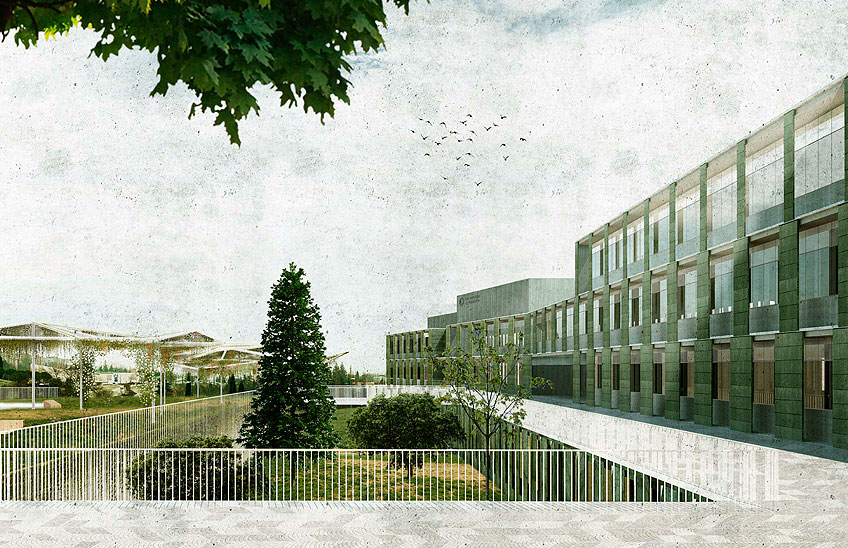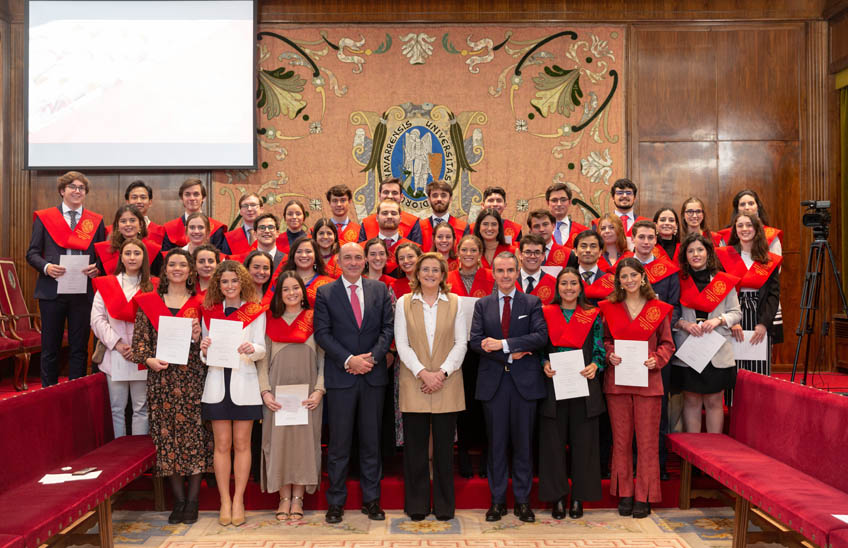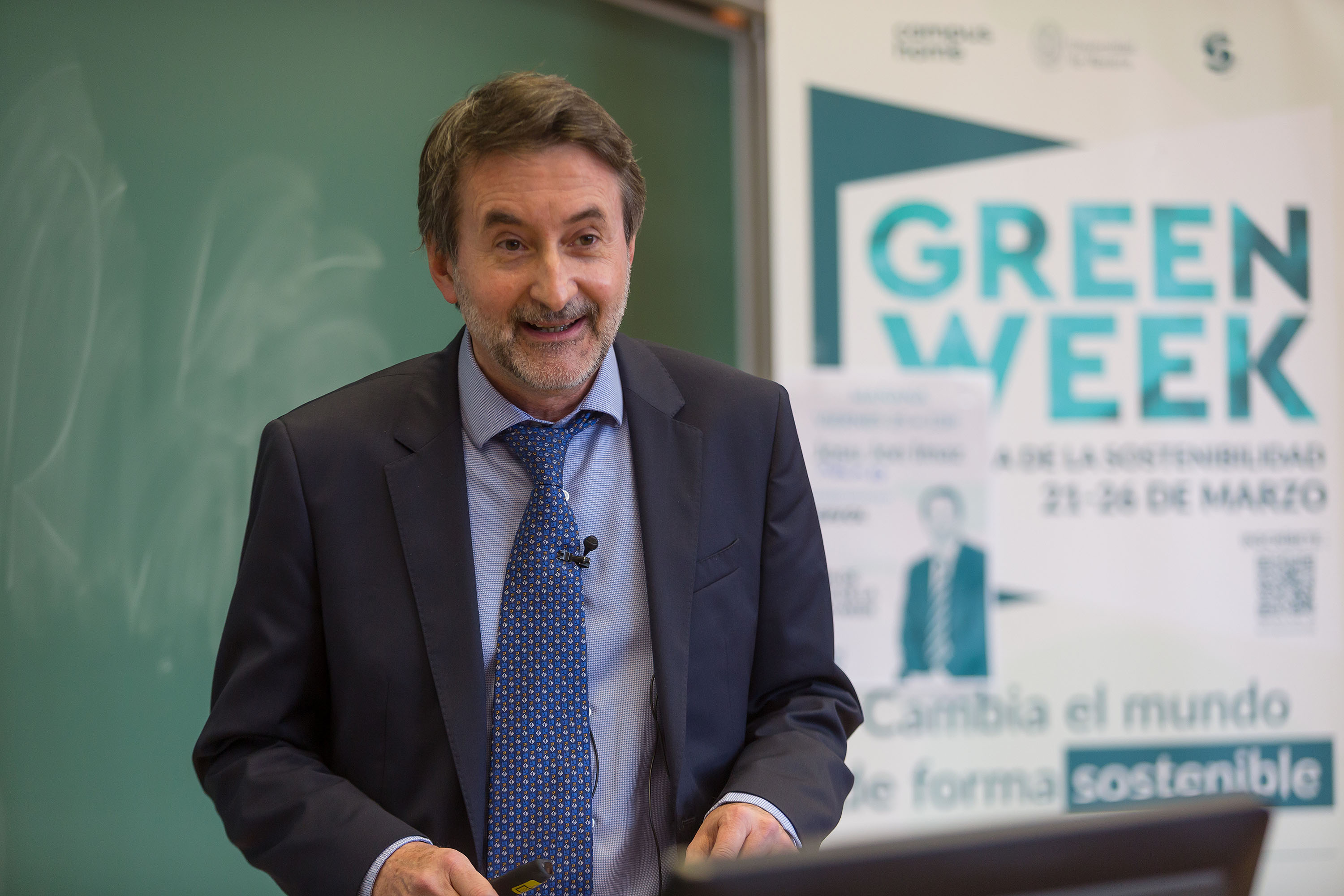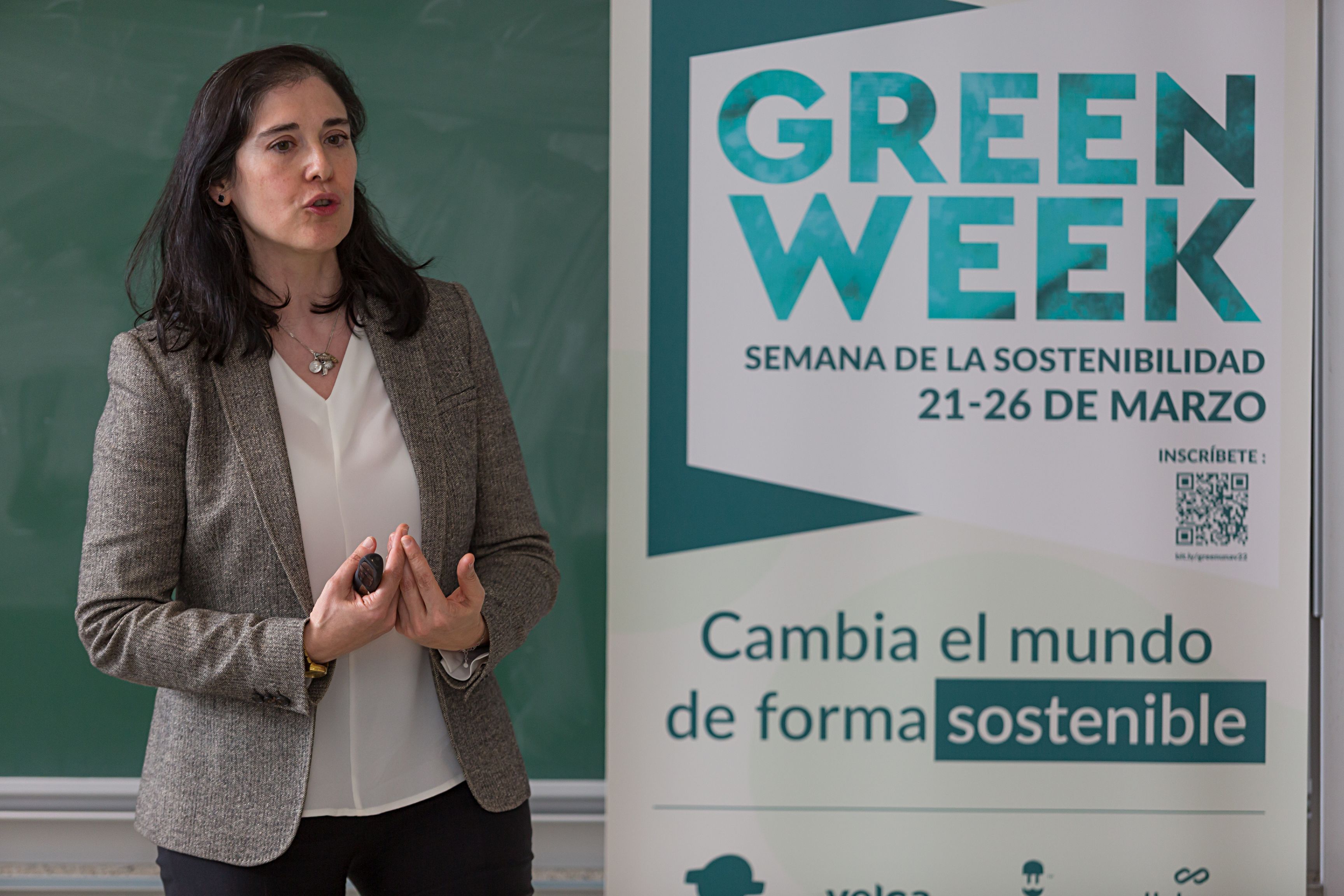"Inclusion of people with disabilities starts at employment"
Fernando Riaño, director of Institutional Relations and Sustainability of group Social ONCE, gives a session at the University.
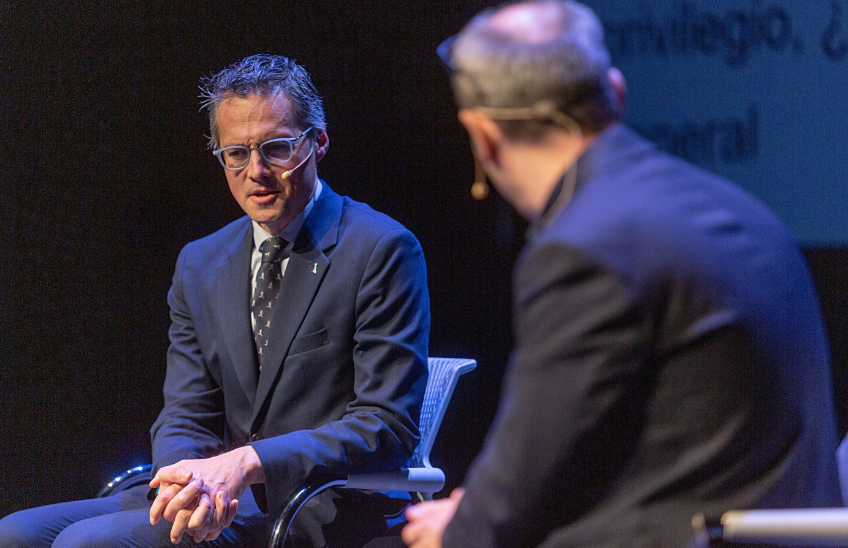
FotoManuelCastells/Fernando Riaño, during his intervention in the cycle Capacitarse para entender la discapacidad organized by Tantaka.
22 | 02 | 2023
"The inclusion of people with disabilities begins at employment and the best tool for employment is training, as the major barriers have often had to do with ignorance". This was stated by Fernando Riaño, director of Sustainability and Institutional Relations of group Social ONCE, in the cycle "Training to understand disability", conference organized by Tantaka, the solidarity time bank of the University of Navarra.
Nearly 350 people attended the first session of the course, which is celebrating its tenth edition and whose aim is to goal the training in disability, in order to achieve a truly inclusive society. The event was chaired by Rosalía Baena, Vice President of Students of the University of Navarra.
In his speech, the president of SERVIMEDIA and vice-president of the World Blind Union pointed out that, despite the fact that there has been "a small revolution" in the inclusion of people with disabilities in the world of work, "there are still many challenges to be met, as the gap that exists is still large".
In this sense, he assured that those companies that embark on the path of inclusion, "in no case turn back, but rather commit to continue adding innovation and accessibility, thus generating a positive impact on their institution and on society". He also highlighted the role that universities and companies play in generating opportunities for people with disabilities and appealed to partnership of the public and private sectors, also demanding "an increase in public policies": "To multiply and have more impact, we must add together".
Going beyond regulatory compliance
On the other hand, Riaño made reference letter to the changes that have taken place in recent years in the legal system of our country and, although he applauded them, he appealed to go "beyond regulatory compliance, as has happened with sustainability, for example, where there has been a learning process for people and institutions and a positive impact on society". Riaño, Alumni of the University of Navarra, highlighted "the essential and transforming role of entities such as group Social ONCE (ONCE, ONCE Foundation and ILUNION), CERMI or the Spanish Paralympic committee ; exemplary organizations with a real impact on the lives of people and their families".
The next session of the series will take place on Monday, February 27, at 14:00, in the theater of the Museum of the University of Navarra. Gloria González Aseguinolaza, director of Innovation and Transfer of Cima University of Navarra, and José María Casado, founder and advisor of GERNA (group of Rare Diseases of Navarra), will talk about rare diseases. On March 6, mental health as the second cause of disability will be addressed; and on March 13, the series will end with a session on sport as a way to promote the inclusion of people with disabilities. The attendance to the sessions is free of charge, prior registration in this link.

